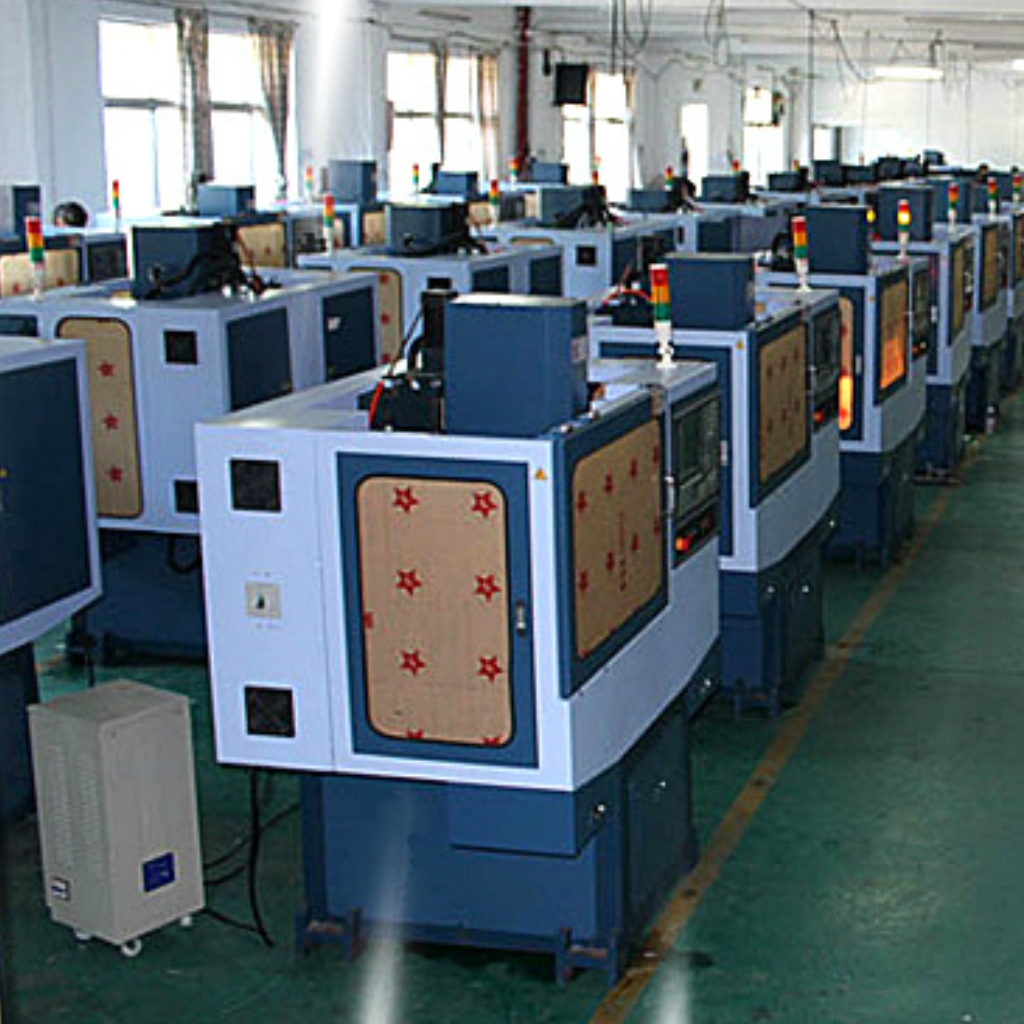Blog
Xendoll has 22 years of experience in the production of small machine tools. We will help you choose the suitable machine and share our experience in CNC machining with you.
 Jun 14, 2025
Jun 14, 2025

 1132
1132
The captivating whirl of the lathe, the scent of fresh wood shavings, the transformation of a raw block into a functional or artistic object – woodturning offers immense creative satisfaction. For those eager to begin, understanding the components of the initial investment is crucial. While costs vary, knowing what you need and how to prioritize empowers smart planning. Whether you're a hobbyist, educator sourcing equipment, or a small workshop expanding capabilities, let's explore the essential investments for launching your woodturning journey, focusing on functionality and value.

I. The Foundation: Core Equipment for Turning
The heart of your setup lies in two fundamental elements: the lathe and the tools that shape the wood.
The Engine: Choosing Your Wood Lathe
Entry-Level Mini/Midi Lathes: This category is the ideal starting point for most beginners, hobbyists, and educational environments. These lathes, like the pace-conscious Xendoll Mini/Midi Series, balance capability with practicality. They excel at smaller projects such as pens, modest bowls, spindles, and handles. Key features include benchtop designs (saving space and initial stand costs), sufficient swing capacity for entry-level work, and adequate distance between centers. They provide a solid foundation for skill development.
Full-Size Benchtop/Small Floor Models: Stepping up offers greater capacity for larger diameter bowls and longer spindles, increased power for tackling denser woods, and enhanced stability. This tier suits those certain they want to focus on larger pieces from the outset or need robustness for frequent use.
Critical Selection Factors: Prioritize swing capacity (max workpiece diameter), distance between centers (max length), motor power, variable speed control (highly recommended for versatility and safety), and overall build quality. A well-designed mini/midi lathe provides an excellent, capable starting platform.
The Shapers: Turning Tools & Sharpening - The Indispensable Duo
Starter Tool Sets: Begin with a core set of essential tools. Look for sets typically including a roughing gouge, spindle gouge, potentially a bowl gouge, a skew chisel, and a parting tool. Opting for quality High-Speed Steel (HSS) is vital; inferior steel dulls rapidly, hindering learning and results. Reputable brands and compatible sets, like those offered by Xendoll for optimal performance on their lathes, ensure a better experience.
Sharpening System: Non-Negotiable. Sharp tools are safe tools and produce clean cuts. A basic slow-speed grinder paired with a simple sharpening jig forms the most practical and effective entry-level system. Consistent sharpening is fundamental to the craft – attempting to turn with dull tools is frustrating and hazardous.
II. Supporting Cast: Essential Accessories & Safety Imperatives
While the lathe and tools are central, these elements are critical for safety, efficiency, and enjoyment.
Workholding: Securing Your Project
Faceplate: Often included with the lathe, essential for mounting bowl blanks or irregular shapes directly.
4-Jaw Scroll Chuck: Considered an invaluable upgrade for most turners. It provides secure, convenient, and versatile holding for bowl blanks, spindles between centers, and reverse turning tasks. Ensuring spindle thread compatibility (common sizes include 1" x 8tpi or M33 x 3.5) is key Xendoll offers compatible chucks. designed for smooth integration with their lathes.
Safety Gear: Absolute Priority
Full-Face Shield: ESSENTIAL EQUIPMENT. Standard safety glasses are insufficient protection against the significant hazards posed by flying wood debris or tool catches. A full-face shield is mandatory for every turning session.
Respirator/Dust Mask: Wood dust poses serious respiratory health risks, especially from certain species. A high-quality respirator with appropriate particulate filters (like P100) or a powered air-purifying respirator (PAPR) is crucial for long-term health.
Protective Clothing: Wear close-fitting clothing, avoid loose sleeves, and NEVER wear gloves near a rotating lathe. Secure long hair tightly.
Workshop Environment: Setting the Stage
Adequate Power: Ensure your workshop outlet can reliably supply the required power for your chosen lathe.
Sturdy Stand or Bench: A lathe demands absolute stability. A heavy-duty workbench suffices initially for benchtop models; dedicated lathe stands or robust custom builds are excellent for minimizing vibration, which is detrimental to precision turning.
Effective Lighting: Excellent task lighting focused directly on the workpiece is vital for seeing cut details clearly and maintaining safety.
Dust Management: Protecting Health and Space
While often an afterthought, controlling wood dust is critical. Start practically with a shop vacuum positioned close to the cutting point. As involvement deepens, dedicated dust collectors or air filtration systems become worthwhile investments for a healthier and cleaner workspace. Any level of dust extraction is significantly better than none.
III. Materials & Consumables: Fueling Your Craft
Wood: Costs can range dramatically. Beginners can source economical or even free wood (urban lumber, green wood from tree services, domestic species like pine, poplar, or maple cut-offs). Dried turning blanks from specialized suppliers offer convenience but increase material costs. Starting with accessible wood keeps initial material investment low.
Finishes: Options abound, from simple food-safe oils and waxes to shellacs, lacquers, and polyurethanes. Beginning with a basic food-safe oil and wax is cost-effective and sufficient for many projects.
Consumables: Budget for sandpaper (various grits), finishing pads, replacement drive/live centers (beyond basic included ones), adhesives, etc. These represent manageable ongoing expenses.
IV. Smart Strategies for Building Your Workshop
Prioritize Essentials: Focus first on the non-negotiables: a capable lathe, a core set of quality tools, a sharpening system, a full-face shield, and a respirator. Accessories like chucks and enhanced dust control can follow.
Invest Wisely in Core Items: Compromising on sharpening capability or critical safety gear is counterproductive. Quality HSS tools and a reliable sharpening setup pay dividends in results and enjoyment.
Explore the Used Market (Cautiously): Pre-owned lathes, chucks, and tools can offer value. Inspect carefully for excessive wear, damage, and ensure parts/service availability.
Consider Starter Bundles: Manufacturers and retailers, including XendollTools.com, often provide thoughtfully curated starter bundles combining a lathe, basic tools, and sometimes a chuck, offering convenience and potential savings.
Phase Your Purchases: You don't need every accessory immediately. Master fundamental spindle turning techniques before investing heavily in specialized bowl gouges or complex chuck jaws.
Source Wood Strategically: Leverage local resources. Connect with tree services, arborists, or woodworkers for green wood or cut-offs. Processing your own blanks (safely, with proper tools and knowledge) can drastically reduce material costs.

Conclusion: Investing in a Rewarding Journey
Starting woodturning requires thoughtful investment in core equipment, vital safety gear, and foundational accessories. While specific costs depend on choices and sourcing, the focus should be on acquiring reliable, safe, and functional tools that enable skill development. Prioritizing a quality mini or midi lathe, like the engineered-for-performance options from Xendoll, along with sharp tools and uncompromising safety equipment, creates a powerful launchpad.
View this initial investment not merely as purchasing tools, but as gaining entry into a deeply gratifying craft. Woodturning offers endless creative exploration, tangible results, and connection to a supportive global community. The rhythm of the lathe and the interaction of tool and wood mark the beginning of an enriching journey. Discover the potential of precision-engineered mini and midi lathes and thoughtfully curated starter solutions at xendolltools.com to confidently begin your woodturning adventure.



 Show all our samples
Show all our samples
 Provide you with a free quote
Provide you with a free quote
 Answer all the questions you may have
Answer all the questions you may have
 Guided installation and other options
Guided installation and other options